Does A Humidifier Help With Stuffy Nose? [ANSWERED]
As an Amazon Associate, I may earn from qualifying purchases at no extra cost to you.

Having trouble sleeping because you can’t even breathe comfortably? You probably have a stuffy nose – and you’re probably eager to get rid of it!
So why is your own body giving you a hard time of breathing, and what can you do to stop it?
Can a humidifier really get rid of your stuffy nose?
Read on to find out.
More...
What causes a stuffy nose?

The “stuffy nose” feeling comes from the swelling of the tissues and blood vessels in your nose and adjacent areas.
This results in a narrowed passage that air has trouble getting through, thus your difficulty breathing. Having a stuffy nose is more properly called as nasal congestion.
Sometimes, a stuffy nose can even happen in conjunction with nasal discharge, which can be a real pain, especially for children.
For some, nasal congestion is almost always followed by an overproduction of mucus, which will lead to the mucus dripping out of your nose – in what’s known as a runny nose – or worse, the mucus completely clogging up your nose.
So what causes your nasal tissues and blood vessels to swell?
Nasal congestion can be due to a variety of possible reasons. Anything that irritates your nasal passage can lead to a stuffy – and even runny – nose:
Now, you’ve read online that you should use a humidifier to help relieve you of a stuffy and runny nose, and you’re probably still wondering if that humidifier you bought exactly to solve this dilemma will really help you.
So does a humidifier really help with a stuffy nose?

If you’ve had a stuffy nose for a while and you’ve finally bought a humidifier to try and solve this problem for good, then we have great news for you: your purchase wasn’t in vain.
A humidifier can in fact help with a stuffy nose!
However, it can help your difficulties breathing only in specific situations:
Dry air

For instance, if you suspect that your stuffy nose is due to dry air, then a humidifier will definitely help out in this case.
Dry air can be irritating to your nose, and therefore cause the tissues and blood vessels within to swell.
Thus, the solution to this would be to avoid breathing in dry air. Of course, dry air is avoidable in cold weather if you merely stay home, but what if the air inside your house is lacking in moisture too?
This is where a humidifier comes in.
Mucus congestion

For people with a congestion of mucus in their noses, a humidifier can also help you the same way steam inhalation does.
Moisture will soften the buildup of mucus in your noses and allow for an easier time in blowing it out, thus making it easier for you to breathe!
Sleeping
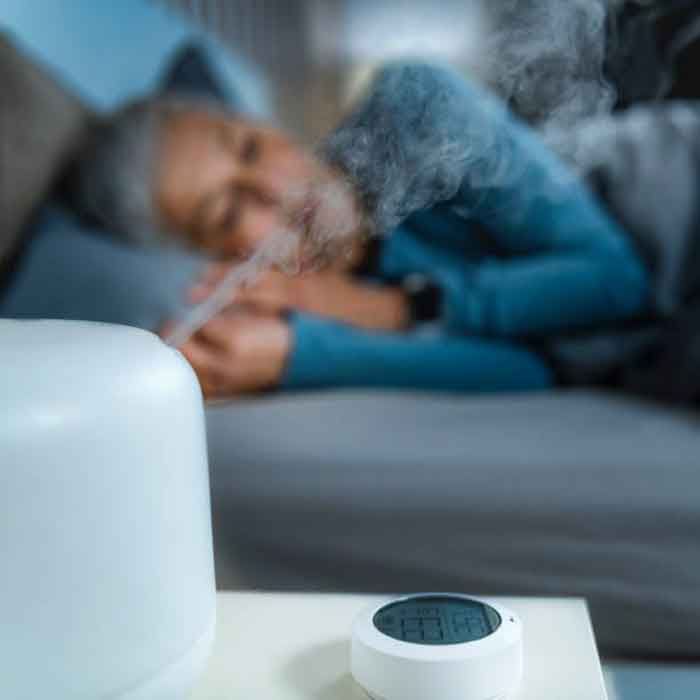
It’s also recommended to use a humidifier in your bedroom at night.
Because difficulty breathing can give you difficulty sleeping, too, a humidifier will clear up the congestion in your nose as you sleep, and you won’t have to wake up as often thanks to trouble breathing.
In particular, it’s recommended to use a cool mist humidifier, as this will help bring moisture to your nose even better.
Importance of humidifier maintenance
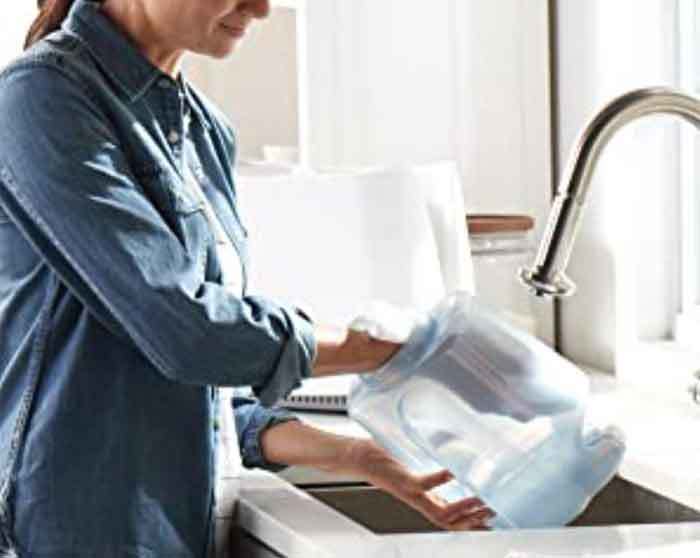
However, take care to regularly clean out your humidifier, as it can be a breeding ground for mold spores, which in turn will cause your indoor environment to be riddled with the little irritants! These mold spores can cause your nasal congestion to worsen.
Can a dehumidifier help with a stuffy nose too?
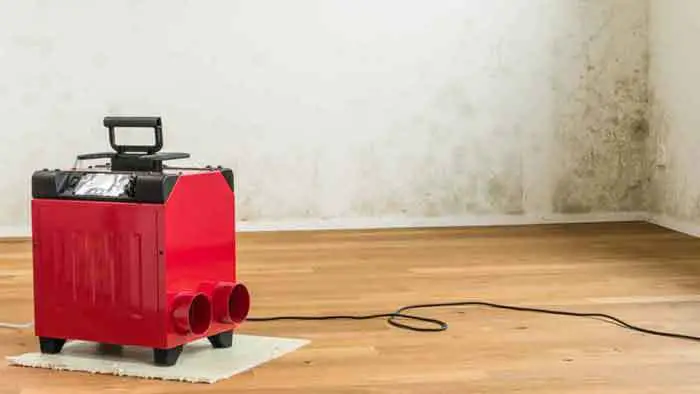
If you’re wondering if a dehumidifier can provide the same relief, then for the same reasons stated above, it won’t.
A dehumidifier can, however, eliminate the presence of allergens in the air!
This is because excessively moist air can also encourage mold spores and pollen to take its place within your home.
But a word of caution, a dehumidifier will also further dry out the air that you breathe, causing your nasal passages to be irritated. So it’s best to use a humidifier instead when it comes to nasal congestion.
Although you know now that a humidifier can help you be relieved of a stuffy nose, don’t neglect the other possible methods you can try to soothe the swelling of your nose, too!
How else do I treat a stuffy nose?
There are a number of other ways to get relief from nasal congestion.
1. Taking Medicine

For people whose noses are swollen thanks to an allergic reaction, some over-the-counter medicines can suppress your reactions, like cetirizine, loratadine, and antihistamine.
Some over-the-counter decongestants can also be bought at drugstores to treat the swelling of your nose.
If your nasal congestion comes with sinus pressure, which feels like a dull sting in your nose due to inflammation, you can take pain killers to numb the pain.
2. Nasal irrigation
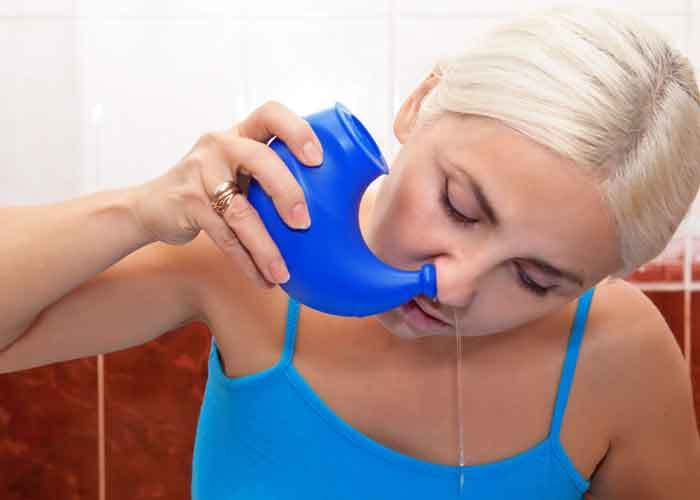
For those whose nasal congestions are paired with a runny nose – it almost always is! – you can use a nasal irrigation solution to flush out the excess mucus from your nasal passages.
This makes for easier breathing, and you can easily buy the solution at a drugstore, too.
3. Steam inhalation

Steam inhalation can do wonders to soothe the swelling of your nose and decongest the mucus stuck in your passages. It will make the mucus runnier, and thus you can easily blow it out.
4. Take a warm shower
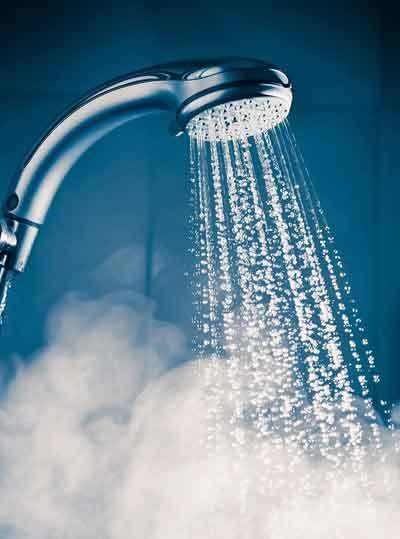
A long, hot shower can also help you decongest.
5. Drink water

Drinking lots of water also makes the mucus in your nose thinner.
6. A combination of methods

Lastly, in conjunction with installing a humidifier in your room, drink lots of water too, and take some over-the-counter medications to get rid of your nasal congestion and go back to living a comfortable life.
